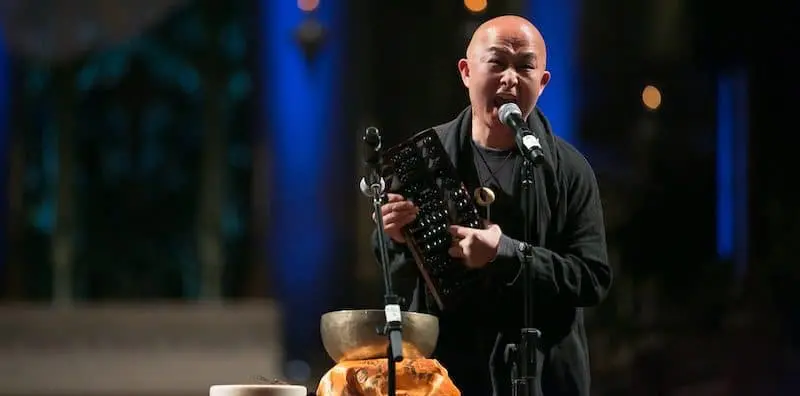“We Cannot Help but Feel Sorrow”: On Commemorating the Tiananmen Square Massacre
There’s a quote that I believe every conscientious person should know. It is commonly attributed to the indigenous Australian artist Lilla Watson, though she has said that the quote was not hers but rather the brainchild of an Aboriginal activists collective. The quote is: “If you have come here to help me, you are wasting your time. But if you have come because your liberation is bound up with mine, then let us work together.”
The late, great Ursula K. LeGuin put it differently, writing in The Dispossessed: “It is our suffering that brings us together . . . there is no help for us but from one another, that no hand will save us if we do not reach out our hand.” It is a more sobering version of the same idea: that once we recognize how we as humans are inextricably linked to one another, only then do we have a foundation to work together for a better future.
Today is the 30th anniversary of the Tiananmen Square Protests. On June 4, 1989, student-led protestors were occupying the Tiananmen city square in the center of Beijing, demonstrating for civic and societal reform. They called for freedom of speech, freedom of the press, democratic reforms, and an end to corruption. They had been there for weeks. The writer Ma Jian, remembering his participation in the Protests, said “One morning, I climbed the central monument to look down at the vast crowd below, and I saw my beloved country crying, not in despair, but with joy.”
By the end of that day, hundreds if not thousands of protestors would be dead, a result of Beijing’s decision to put down the demonstrations with bullets and tanks. The official number is highly contested: The Chinese government estimates only 300 deaths, but other estimates are far higher.
Nowadays, it is illegal to discuss the Tiananmen Square Massacre within China itself. It is not taught in classrooms or read about in libraries. It is ruthlessly censored from books, newspapers, and online posts. Those who commemorate June 4 quickly find themselves arrested. This includes writers and artists like Murong Xuecun, Chen Guang, and Guo Jian. If you are a Chinese citizen and you wish to commemorate the anniversary of this movement, of this massacre, you must travel to Hong Kong or to Taiwan—places where the Chinese Communist Party has not yet snuffed out freedom of expression or assembly.
Today, Chinese online censors will be working on overdrive, ready to scrub any mention of the Massacre from blogs or social media. Police will be out in force on the Square itself, ready to arrest anyone making a scene.
This is, in part, why it is so important that those of us who can commemorate the massacre, do.
I had the remarkable privilege of attending PEN America’s own commemoration of Tiananmen—co-hosted with Humanitarian China and the Cathedral of St. John the Divine—early last month. At our event, “Rise Up: Tiananmen’s Legacy of Freedom and Democracy,” held as part of the PEN World Voices Festival, survivors and commemorators of Tiananmen were joined by artists and activists from around the world to honor the spirit of protest, and the painful sacrifice, embodied by Tiananmen those 30 years ago.
Artists like Martha Redbone and Aja Monet reminded us of how art is a chronicling of human experience, and serves as a vehicle for commemorating tragedy. Activists like Julia de la Cruz and Chemi Lhamo reminded us how the battle for a better world rages in our own backyards. Your liberation is bound up with mine. The Reverend William Barber extolled the power of speech as a tool for justice.
There were more exuberant moments to the evening, such as when samba reggae group Fogo Azul walked down the aisle of St. John in a raucous drum line, a procession of joyful resistance, evoking the “cry of joy” that the Tiananmen protests offered prior to their bloody suppression.

But, of course, the overall mood of the event was a heavy weight. Tiananmen survivors—including Fang Zheng, Wang Dan, and Zhou Fengsuo—shared their personal memories of June 4. This was unquestionably their event. Their words were paeans to the dead. They were grave offerings, and visions of a future that was snuffed out. They were raw wounds.
Perhaps the most powerful contribution was that of Chinese poet Liao Yiwu, who read his poem “Massacre” with translator Michael Martin Day. Liao wrote the poem days after the Tiananmen Square Massacre. When Liao and Day first read the poem, 30 years ago, they were viciously punished: Day was expelled from China, and Liao was imprisoned and tortured.
Thirty years later, Liao and Day read the poem within the hallowed heights of St. John’s Cathedral. At several points during the reading, Liao would simply cry out in a wordless scream. It was something you felt deep in your gut. Many of the attendees were in tears when Liao finished.

In the face of such pain, such rage and grief, we as human beings cannot help but feel sorrow. It is our suffering that brings us together.
In an ideal world, this anniversary would be commemorated within mainland China. But it’s not, precisely because this is not an ideal world. That is why it is so important that people of conscience around the globe remember this day. The promise, and the sacrifice. The memory, and the pain.
There is no help for us but from one another. Let us work together.






